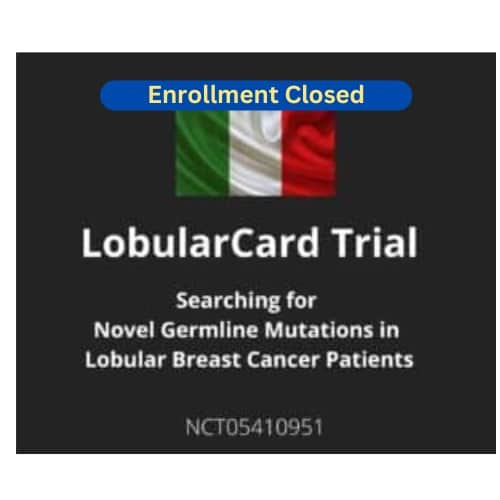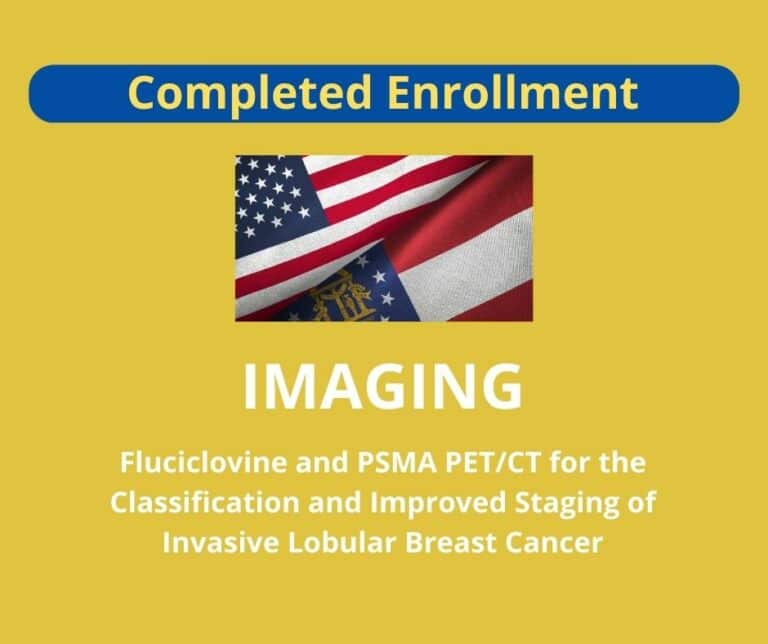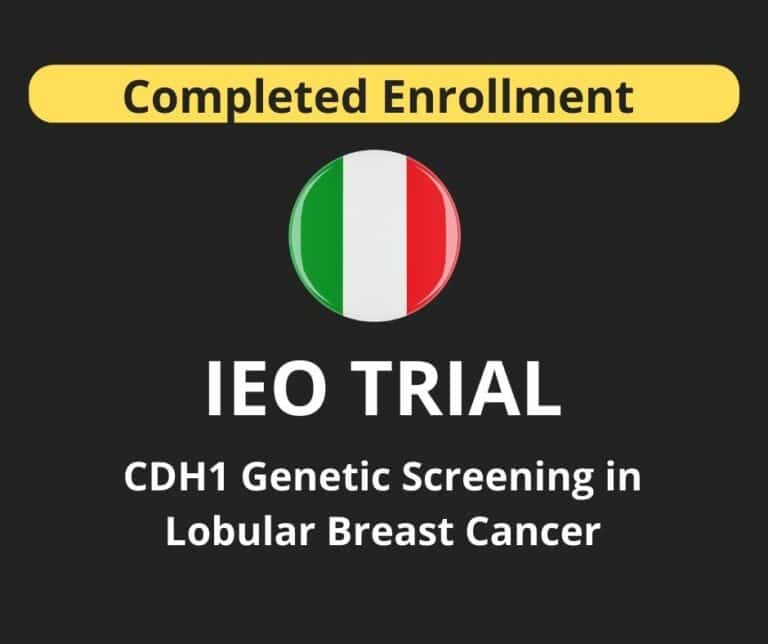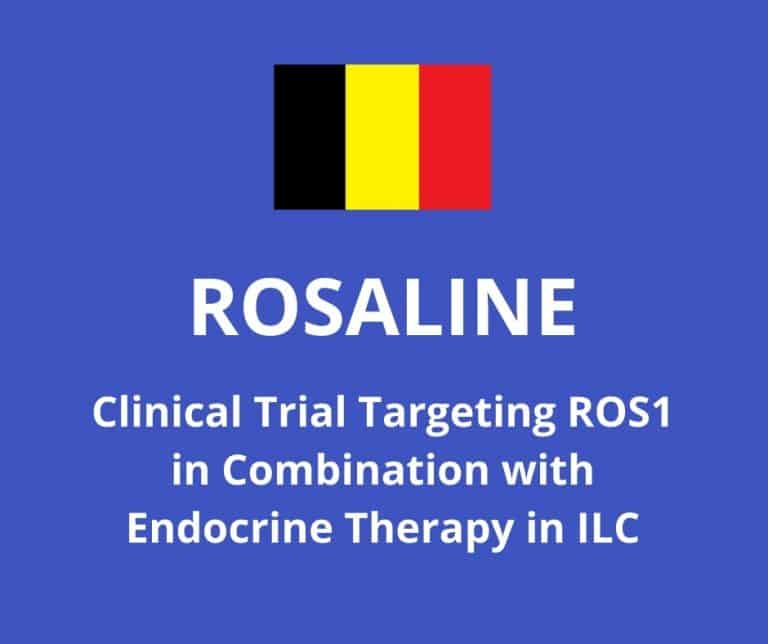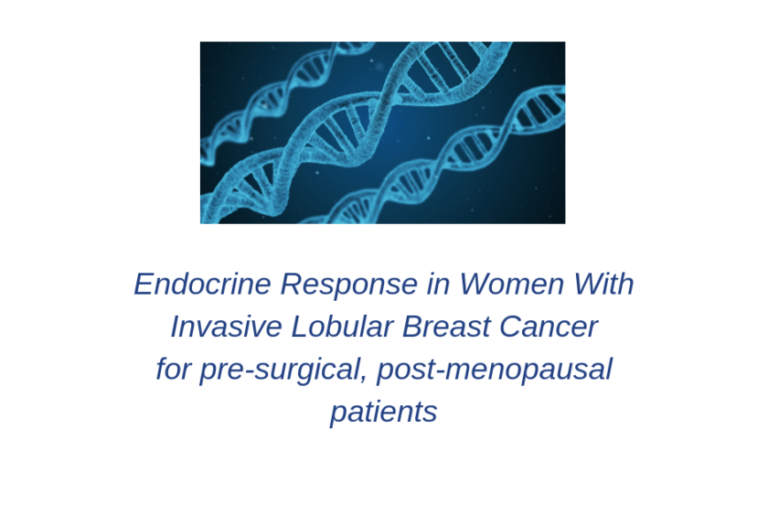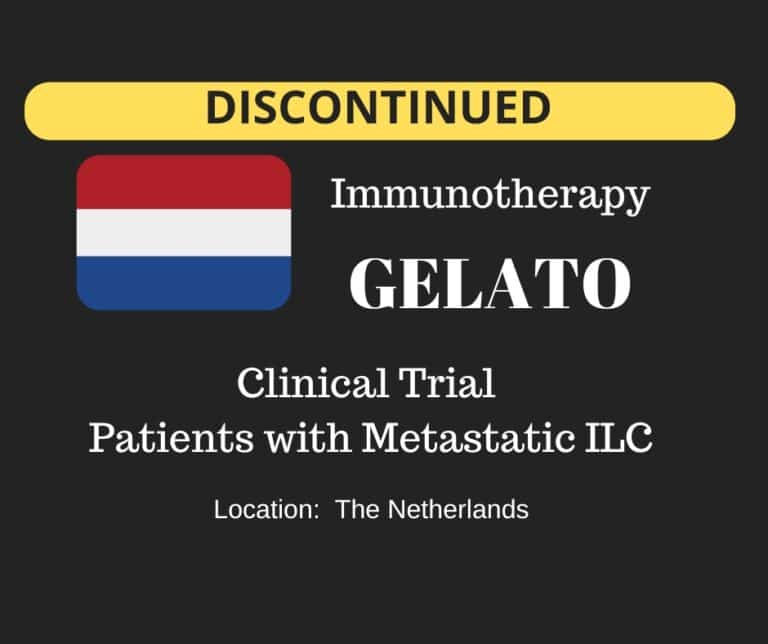Clinical Trials
Since lobular breast cancer is a separate breast cancer histologic subtype, there is a critical need for people with ILC to participate in clinical trial research.
Substantive research is needed to accelerate understanding of invasive lobular carcinoma (ILC), also known as lobular breast cancer. This distinct breast cancer subtype represents about 15% of all breast cancers. Increased research could help improve detection, treatment, prevention of metastasis, and ultimately, develop a cure for people with ILC. Laboratory research studies, especially those using patient tumor samples, can help scientists understand the biology of ILC and pave the way for development of targeted therapies.
Participation in clinical trials is one way that patients who are affected by ILC can help advance the understanding of lobular breast disease. ILC has historically been understudied in clinical trials. Often there are inadequate numbers of people with ILC enrolled in trials, in part because ILC incidence is lower and patients with ILC are fewer. While the data generated by the trial is typically relevant to all breast cancer subtypes, it is not going to be specific to ILC.
There are many important clinical trials that study the effects of treatments on ER+ tumors and that enroll patients with either ILC or the more common ductal breast cancer, and it is helpful for patients with ILC and ER+ tumors to enroll in these trials. It is also the case that if enough enrollees are patients with ILC, findings can be analyzed specifically with respect to the impact on ILC. It is also important to be aware of clinical trials that are being developed that focus exclusively on patients with ILC. There are currently only a few of these but LBCA posts these regularly (scroll down for current clinical trials) and encourages enrollment in these trials since they will have specific applicability for lobular breast cancer. These are especially important to help determine how current standards of breast cancer treatment might be improved to better address the unique needs of those with ILC.
How Clinical Trials Help Advance ILC Research and Can Benefit Participants
Clinical trials help scientists and doctors to better understand how to refine current standard of care breast cancer treatments. When people with ILC participate in clinical trials in large enough numbers, the study impact can be analyzed specifically for ILC along with ductal breast cancer. Depending on what proportion of the clinical trial enrollment patients with ILC comprise, this may be referred to as a clinical trial “enriched” for people with ILC.
People with ILC participating in clinical trials may also receive a new treatment that is hoped to be more effective but not yet available outside of a research setting. Clinical trials will often compare the addition of such newer treatments to the current standard of care treatment. Many people with ILC also like the idea that their participation in a trial may provide benefits to future patients.
LBCA is advocating for more clinical trials that are designed for people with ILC to both foster development of new therapies and to refine the application of current therapies specifically for ILC. LBCA is also advocating for more ILC-enrichment in planned larger breast cancer clinical trials to enable more ILC-specific analysis of the impact of drugs being tested in patients.
Finding Clinical Trials and Determining Whether to Participate
If you are receiving treatment at a large cancer and/or research center, your doctor may alert you to trials you might consider. All clinical trials have specific eligibility criteria that must be met to qualify for enrollment. Your doctor may make you aware of a clinical trial, or you may find one on your own. It is important to review the purpose of the clinical trial and the eligibility rules with your doctor.
Sometimes your doctor might refer you to a trial outside of his/her hospital, or you may find one on the Internet for which you qualify. In these cases, your doctor can refer you to an oncologist who can assist you in enrollment. Some trials may be available at only one hospital, while others may be offered at several hospitals. Your doctor may also alert you to trials that have an opportunity for your enrollment.
When considering participation in a clinical trial, there are questions you might wish to explore to more fully understand what impact participation in a clinical trial will have on your life. LBCA has put together some key questions that you can download that you may wish to ask your doctor before joining a clinical trial.
Other sites such as the National Cancer Institute offer additional questions you might want to ask when considering a clinical trial, and information about the risks and benefits of participating in a clinical trial. Always talk to your medical provider before participating in a clinical trial or research study.
Finding Clinical Trials on the Internet
LBCA tracks and shares information about important clinical trials and studies here when we learn of them. Trials and studies that focus on or specifically include patients with ILC are highlighted below. If you find a clinical trial on the Internet and think that you might wish to enroll, it is important to speak with your oncologist before doing so.
Breast Cancer Clinical Trial Search Tools
LBCA partners with BreastCancerTrials.org to help connect patients with clinical trials. BreastCancerTrials.org is an online, searchable resource for all breast cancer patients that offers clinical trial searches, a clinical trial matching service, a separate metastatic breast cancer trial search and matching service and general information about trials and questions to ask doctors. Breastcancertrials.org is not provided or managed by LBCA.
Metastatic Breast Cancer Trial Search, a project of BreastCancerTrials.org, is a tool to help patients with metastatic disease search for and match to clinical trials. The tool allows women with ILC to search for specific trials. In addition, Metastatic Trial Talk is a newsletter that offers carefully selected news and features about metastatic breast cancer research.
ClinicalTrials.gov is the US government’s listing of clinical trials. It includes a searchable database of clinical trials from around the world.
Current and Past Trials
See below for information on ILC-focused clinical trials and clinical trials that are to be enriched with individuals with ILC to enable analysis of the impact on lobular breast cancer. Also listed are several trials that have completed their enrollment or have been discontinued as well as links to research articles about or on topics related to these studies.
Research Articles Related to ILC Clinical Trials
ROSALINE
ROSALINE: a phase II, neoadjuvant study targeting ROS1 in combination with endocrine therapy in invasive lobular carcinoma of the breast appeared in Future Medicine in June 2022.
GELATO
PD-L1 blockade in combination with carboplatin as immune induction in metastatic lobular breast cancer: the GELATO trial was published by Nature Cancer in April 2023.
18F-Fluoroestradiol PET/CT
Prospective Pilot Study of 18F-Fluoroestradiol PET/CT in Patients With Invasive Lobular Carcinomas was published by the American Journal of Roentgenology in March 2023.
FAPI PET/CT
The Role of 68 Ga-FAPI PET/CT in Detection of Metastatic Lobular Breast Cancer appeared in Clinical Nuclear Medicine in March 2023.
Are you a patient research advocate and want to work with us to advance ILC research and grants? Email info@lobularbreastcancer.org and introduce yourself! Learn more about Research Advocacy.


